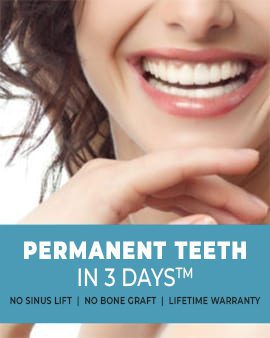Oct 21, 2023
Bad breath, which is formally called halitosis, can be embarrassing for a lot of people. Bad smell is often seen as a social issue, but it can also be a sign of more serious oral health problems. The science behind bad breath, its causes, how to avoid it, and effective ways to keep your breath fresh and your confidence high are all things that this blog post will cover.
The Science of Bad Breath
Halitosis is usually caused by germs in the mouth that make smelly things. These bacteria eat bits of food, dead cells, and other junk, and they make sulfur chemicals that smell bad. These are the main culprits:
Volatile Sulfur Compounds (VSCs): These are the main cause of bad breath. Some examples are hydrogen sulfide and methyl mercaptan. That smells really bad, and bacteria in the mouth make them when they break down proteins and amino acids.
Dry Mouth: Saliva is important for keeping your mouth healthy and fresh. It cleans the mouth by getting rid of germs and bits of food. When your mouth is dry, this natural way of cleaning itself isn’t working as well, which lets more bacteria grow and causes bad breath.
Common Causes of Bad Breath
Poor Oral Hygiene: If you don’t brush, floss, or clean your tongue well enough, food particles and bacteria can get stuck in your mouth and cause bad smell.
Diet: Eating foods like garlic, onions, and spicy foods can give you brief bad breath because they release chemicals into your bloodstream that make smelly things.
Tobacco Products: Smoking and using tobacco products can hurt your teeth and give you bad breath for as long as you use them.
Dry Mouth: Some medicines, mouth breathing, and medical conditions can make your body make less saliva.
Oral Infections: Gum disease, cavities, and mouth infections can make areas of bacteria that release VSCs that smell bad.
Underlying Medical Conditions: Diabetes, respiratory infections, and problems with the digestive system are just a few of the general conditions that can cause bad breath.
Preventing Bad Breath
Oral Hygiene: Stick to a regular practice for oral hygiene. For better oral health, brush your teeth twice a day, floss every day, and use an antibacterial mouthwash every day.
Tongue Cleaning: Use a tongue scraper to get rid of bacteria and food particles from the top of your tongue, which is where most of the bacteria that cause bad breath live.
Stay Hydrated: To keep making enough saliva and avoid dry mouth, drink a lot of water.
Balanced Diet: Eat lots of fruits and veggies and limit the amount of stinky foods you eat. Chewing sugar-free gum or mints can make you salivate more and cover up bad breath for a short time.
Regular Dental Check-ups: You should see your dentist regularly for check-ups and skilled cleanings. Your dentist can find and fix any problems that are going on with your teeth.
Effective Remedies for Bad Breath
Chlorhexidine Rinse: If you have bad breath, your dentist may suggest a prescription rinse with chlorhexidine in it.
Prescription Toothpaste: Some prescription toothpaste can help get rid of bad breath, especially if it’s caused by gum disease.
Treatment of Underlying Issues: Gum disease, cavities, and other oral infections can be treated to get rid of the bacteria that cause bad smell.
Saliva Stimulants: If you have dry mouth, your dentist may suggest medicines or items that stimulate saliva flow.
Antibacterial Mouthwash: Antibacterial mouthwashes, which you can buy over-the-counter or get with a prescription, can help get rid of germs in your mouth, which can temporarily help with bad breath.
Professional Cleaning: Getting a deep cleaning from your dentist or dental hygienist can help get rid of tartar and plaque that has hardened, as well as stop germs from growing.
When to See a Dentist
Bad smell that won’t go away shouldn’t be ignored. If improving your oral health doesn’t help or if you have other symptoms along with bad breath, you should see a dentist. They can look at your situation and tell you what treatment will work best based on what’s causing it.
Fresh Breath, Confidence, and Healthy Teeth
If you know how bad breath works scientifically, you can take charge of your mouth health and keep your breath fresh. Halitosis can be prevented and treated by taking care of your teeth and gums regularly, eating a healthy diet, and keeping in close contact with your doctor. Being able to handle social and professional settings with confidence when your mouth is healthy and you have fresh breath is a good sign.
Dr. Motiwala in International Press
Dr. Motiwala is a world-renowned dentist who has cared for thousands of patients from every corner of the globe. He has been featured on several news outlets; to read about it, select the network’s logo below.
 |
 |
 |
Time to Get in Touch With Us!!
For more information about the Smile Makeover in India, get in touch with Dr. Motiwala’s Dental Clinic & Implant Center at +91 99596 14584. Simply fill out the form on our CONTACT US page.





